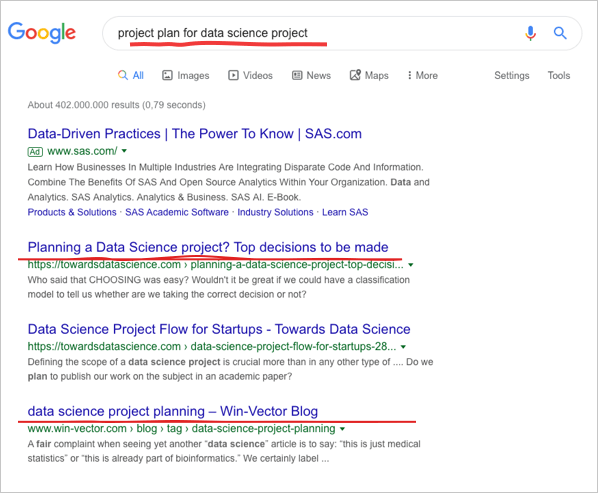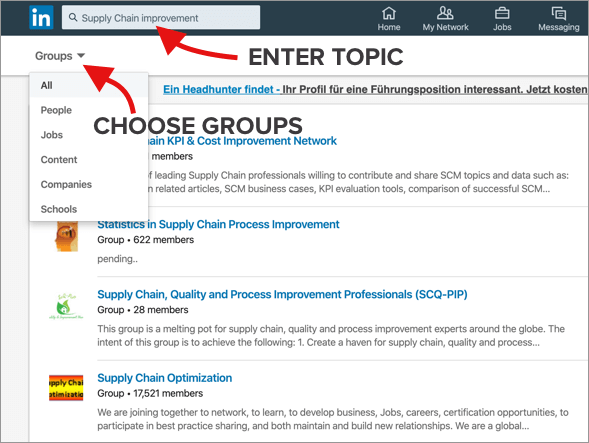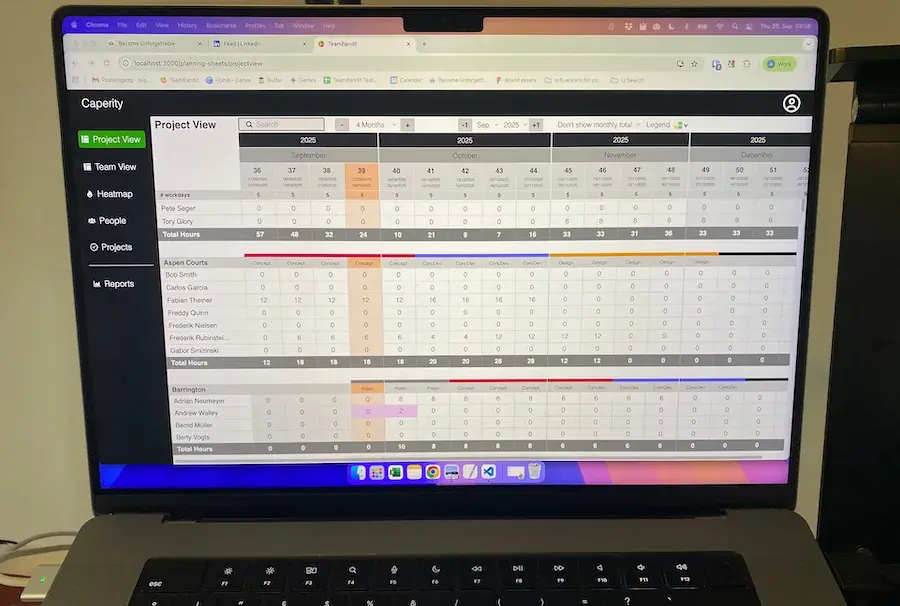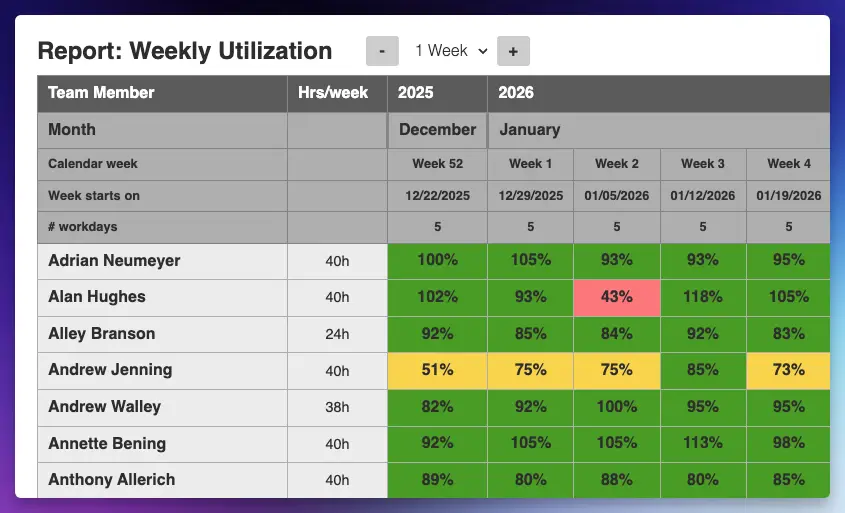Your project is approved and now it’s your turn. But the problem is: you have no clue how to get started. Time is running quickly and you are under pressure to get something on paper and create a plan. What’s wrong?
If you’re in that situation, that’s totally normal. It’s common to get stuck in the early stages of a project.
In this article I’m going to show you 10 ways how you can get unstuck and finally figure out what steps you need to take.
After you’ve gone through this article and apply my tips, you’ll have a much clearer picture.

You don’t have to solve the puzzle by yourself
When you’re stuck, reach out for help. With the internet this has become easier than ever. It’s very likely that the information you’re missing has already been published on some website or forum.
And even if the exact problem hasn’t been answered anywhere, there are people who want to help you.
The goal is not to answer all your questions, but some research can help you get started. Think of it like identifying all the pieces for a puzzle. You look for the first piece, then the next one, and then again for the next one.
What you can get help on
Your research can focus on a number of things:
- Understand how a project should be organized
- Understand what action steps must be taken
- Learn about major challenges and risks
- Understand where to focus your attention on
- Get recommendations for vendors, methods and tools
My top sources for inspiration
Here are 10 ways you can can get ideas and inspirations for a project:
- Google search
- Experts in your company (who’ve done something similar)
- Discussion boards
- LinkedIn groups
- Vendors
- Other companies in your industry
- White papers
- Books
- Hire a consultant
- Conferences
Google your topic
 Your starting point for any research should be Google. it’s the best resource for finding information about the kind of Project you are handling as well as the industry you are in.
Your starting point for any research should be Google. it’s the best resource for finding information about the kind of Project you are handling as well as the industry you are in.
The challenge is that there is a lot of information out there. And you need to be Savvy in finding the needle in the haystack.
Chances are, that what you’re looking for won’t be listed on the first page of Google. Maybe even not on the second or third page when you are working on a very specific topic. Such as how do you build a big data platform 4 tracking the movement of bees.
When searching, into the type of content you’re looking for for example project plan or a list of common risks, and combine it with the topic or industry relevant for you.
Examples:
- project plan <topic>
- lessons learned <topic> project
- challenges <topic>
- steps to <topic>
For example, you can google
project plan for data science project
if you are planning a data science project.
Here’s what you will find:

As you can see, it’s very easy to find material that’s gonna help you progress.
You can even find sample project plans, lessons learned and more..
If you’re looking for answers for specific problems, try a how-to question:
- How to set up Wi-Fi infrastructure for a warehouse
- How to organise an office relocation
- How to export capital goods to to Chile
- How to choose a a payroll service provider
- How to write a a project proposal for a research grant
Reach out to experts in your company
This is one the most overlooked opportunities.
You can ask around in your company if anybody has experience with the subject matter of your project.
There may be people who have the expertise you are looking for, maybe from doing a similar project at their previous employer.
And these people are happy to share their knowledge with you.
How can you find experts in your company?
- Send out an email to your colleages
- Ask around (“Do you know anyone who has experience with x?”)
- Talk to HR. HR has a record of every employee. They know what jobs people have worked in before, what degrees they have and so on. Some companies even maintain a skills database where they track the skills of every employee. Such databases are created exactly for one reason: to find the right expert.
Discussion forums
Online forums are also an excellent resource to research on a topic and to connect with experts who have the skills and knowledge that you are looking for.
There are Online forums for any kind of topic and for any industry. Most of the forums can be accessed freely without requiring any paid subscription.
Here are some general online forums:
Reddit is a general online discussion board which has sub forums (so-called sub-reddits) for any topic from A to Z. Just to show you the variety of topics discussed on Reddit, here are some of the available sub-forums:
- Engineering (https://www.reddit.com/r/engineering/)
- IT (https://www.reddit.com/r/it/)
- Human Resources (https://www.reddit.com/r/humanresources/)
- Marketing (https://www.reddit.com/r/marketing/)
- ERP systems (https://www.reddit.com/r/ERP/)
- Chemical engineering (https://www.reddit.com/r/ChemicalEngineering/)

StackOverflow
StackOverflow is a huge forum for IT and software development. It’s helpful when you were looking for answers to specific technical questions.
Quora
Quora is a huge question and answer site where you can get where you can directly connect with experts.
Questions are organised by topics and there are are experts represented from any field. the wake waterworks is is you post your question and Quora automatically understands the topic it then sense your question to the Express for the subject matter and was in a few hours you will get a tonne of helpful responses.
Find specific discussion boards
To find discussion boards specific to your field of work, use the following search queries on Google:
- <field of work> discussion forum
- <field of work>discussion board
- <field of work>online forum
LinkedIn groups
LinkedIn isn’t just a social network for professionals. it also has as a large number of very valuable discussion groups. groups are organised by industry and by topic and you just have to do a bit of search to find the group that you’re looking for.
Here’s how you can find a LinkedIn group for your niche:

Post your question in the group and wait for experts to come and help you out.
As it goes for any online forum, make sure you phrase your question in a way that makes it easy to answer. If your question is too broad it will be hard for people to give advice.
Contact vendors or service providers
Another source of information are suppliers and service providers who are familiar with your field.
Suppose you are working in maintenance and you’re in charge of of setting up a database which monitors the status of your company’s machinery. Without ever having done such a project it’s really hard to get started.
In order to understand how you can set up such an infrastructure, you could get in touch with software vendors who are selling maintenance database software. They can tell you how to best organize your project.
The downside of talking to vendors is that they have the intention to sell you their product or service. That means it’s not in their interest to give you the “best” and most cost-effective solution to your problem, but they want to sell you their products.
That’s why you always have to take their advice with a grain of salt, because any advice coming from vendors is generally biased.
But still, the advice may help you get a clearer picture of what you need to do.
Contact other companies
When I was in charge of implementing a document archiving system at my company, I reached out to companies who I were using a similar system.
My goal was to learn how are these companies had set up their system, what challenges they faced during the project and whether they were happy with the software. Having such first-hand feedback helped us avoid common pitfalls during the project.
How did we get in touch with companies?
It was one of the potential software vendors who connected us to these companies.
If you don’t want to go through a supplier, you can go to an online discussion board. Ask if anybody has done a similar project. With online forums like LinkedIn groups this is very easy.
When you reach out to other firms, make sure you value their time. They are doing you a favor by giving you free advice.
Some companies may ask you to sign a non-disclosure agreement (NDA). Such an agreement is used to prevent sensitive information from being shared with the public.
White papers
White papers are another excellent source for getting actionable advice about a specific field. Especially when you are are working with new technology.
What is a white paper? a white paper is a piece of marketing material issued by companies. It’s a bit like a study paper with the only difference that it’s focusing on (indirectly) promoting some product or service.
Companies create white papers when their clients need more information on how to use the product this especially when we are talking about complex products such as machinery or IT hardware and software.
White papers are very useful because they help the customers understand how a product is best used or how the project is best implemented. This is exactly material made for you — people who want to know how a product is set up or used.
Let me google some white papers for you:
Suppose you are looking for ideas on warehouse monitoring.
Just enter the kind of white papers you are looking for:

And here’s an example of a white paper:

Again, like other information from companies, white papers can’t be taken as neutral reports. They are marketing material and and published with the idea of selling a product or service.
Still, a well-written, comprehensive white paper can be immensely valuable to help you the project environment, the challenges as well as the required steps.
Read relevant literature
We should not forget books here. Depending on the focus of your project they made already a book out on Amazon which exactly tackles your problem.
Take some time to browse for relevant titles and read the user reviews.
Hire a consultant
There is only so much you can figure out by yourself. Sometimes you have to get external help and hire a consultant who is familiar with the field you are about to work on.
This makes sense when nobody inside the company has ever worked on something similar. It also makes sense when the topic involves new technology or new processes.
Even a 1-2 day workshop with a consultant may be enough to give you enough ideas how you can move forward.
Attend a conference
You can also look for conferences that cover your area of work. Conference provide many opportunities to connect with industry experts and vendors who have the specific knowledge that you are looking to acquire.
Of course attending a conference can be costly, but the money may be well worth it when you leave the conference with a lot of new insights and ideas how to structure and plan your project.
Google for relevant conferences:
- conference industrial transformation
- conference inbound marketing
- conference human resources systems
- conference warehouse robotics
Conclusion
I hope this article has given you some new ideas how you can get inspirations for setting up your project.
Remember that it’s absolutely right to reach out for help. You can’t be an expert in every field!
Smart people have no problem to admit that they don’t know everything. They are willing to hire people who can help them move forward. Even if if you have to pay for the help, remember that it’s cheaper to get an expert onboard than to fix a failed project.
Was this article helpful? Connect with me on LinkedIn. I’d love to hear from you.
Author
-
Hi, I’m Adrian, a Senior Project Manager and the Creator of Tactical Project Manager, where I teach a pragmatic approach to project management. Led large-scale IT and business projects for over 10 years. My goal is to enable you to lead any project with confidence.
View all posts


